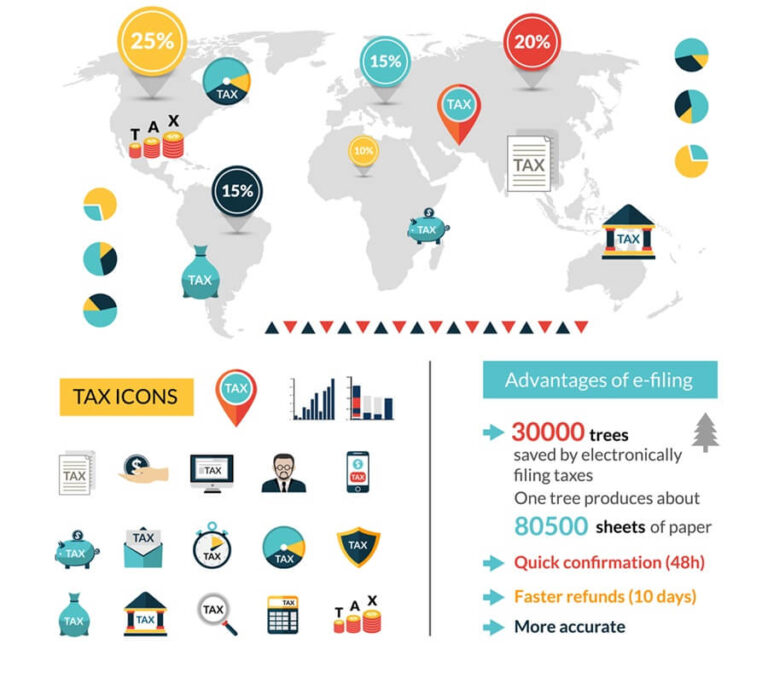Minimizing Double Taxation – Tips on avoiding situations where VAT is charged twice on the same supply
In today’s interconnected global economy, businesses often face challenges related to double taxation, particularly in the context of Value Added Tax (VAT). Understanding the nuances of VAT and the potential pitfalls that lead to double taxation is crucial for businesses seeking to navigate these complex waters.
I. Introduction
A. Definition of double taxation in the context of VAT
Double taxation occurs when Value Added Tax is charged twice on the same supply, leading to financial burdens for businesses and consumers alike.
B. Importance of minimizing double taxation
The financial impact of double taxation can be significant, affecting the bottom line of businesses and leading to higher costs for consumers. Minimizing double taxation is essential for fostering a fair and efficient tax system.
II. Understanding VAT
A. Explanation of Value Added Tax (VAT)
VAT is a consumption tax levied at each stage of the production and distribution chain. It is crucial for businesses to comprehend how VAT works to avoid unintentional double taxation. Read more
B. How VAT is typically applied in various transactions
Different transactions may involve unique VAT considerations. Understanding the application of VAT in various scenarios is key to preventing double taxation.
III. Instances of Double Taxation
A. Common scenarios where double taxation may occur
Identifying common situations where double taxation is likely to occur helps businesses proactively address and mitigate these risks.
B. Impact on businesses and consumers
The ripple effect of double taxation extends beyond businesses, impacting consumers through higher prices and reduced purchasing power.
IV. Legal Framework
A. Overview of international and national laws governing double taxation
Navigating the legal landscape is essential for businesses operating across borders. An understanding of international and national laws is crucial to minimizing the risk of double taxation.
B. Key principles and guidelines for businesses
Compliance with key principles and guidelines ensures that businesses operate within the legal framework, reducing the likelihood of facing double taxation issues.
V. Tips for Minimizing Double Taxation
A. Proper documentation and record-keeping
Maintaining accurate records is the foundation for minimizing double taxation. Robust documentation helps businesses substantiate their tax positions.
B. Utilizing available tax credits and exemptions
Awareness of available tax credits and exemptions empowers businesses to optimize their tax positions and avoid unnecessary double taxation.
C. Collaboration with tax professionals and experts
Engaging with tax professionals ensures that businesses stay informed about changes in tax laws and receive expert guidance on minimizing double taxation.
VI. Case Studies
A. Real-life examples of businesses successfully avoiding double taxation
Examining case studies provides valuable insights into successful strategies employed by businesses to sidestep double taxation challenges.
B. Lessons learned and best practices
Extracting lessons and best practices from real-world examples equips businesses with the knowledge needed to navigate their unique situations.
VII. Technological Solutions
A. Role of technology in minimizing double taxation
Technological advancements offer innovative solutions for businesses to automate tax compliance processes and reduce the risk of double taxation.
B. Innovative tools and software for businesses
An exploration of cutting-edge tools and software that aid businesses in staying ahead of tax regulations and minimizing the risk of double taxation.
VIII. Industry Perspectives
A. Interviews with experts in the field
Gaining insights from industry experts provides a broader perspective on the challenges and opportunities associated with minimizing double taxation.
B. Different sectors’ approaches to minimizing double taxation
Understanding how various industries approach double taxation helps businesses tailor their strategies to align with sector-specific considerations.
IX. Challenges and Solutions
A. Common challenges faced by businesses
Identifying and addressing common challenges businesses face in minimizing double taxation is essential for developing effective solutions.
B. Effective solutions to overcome these challenges
Presenting practical and effective solutions to overcome challenges ensures that businesses are equipped to navigate the complexities of double taxation.
X. Future Trends
A. Emerging trends in tax regulations
An exploration of the evolving landscape of tax regulations provides businesses with insights into future challenges and opportunities related to double taxation.
B. Anticipated changes and their impact on double taxation
Understanding anticipated changes in tax regulations allows businesses to adapt and implement proactive measures to minimize the risk of double taxation.
XI. Benefits of Minimizing Double Taxation
A. Positive effects on businesses and the economy
Minimizing double taxation contributes to a more favorable business environment, fostering economic growth and sustainability.
B. Long-term advantages of adopting preventive measures
The long-term benefits of adopting preventive measures go beyond immediate financial gains, positioning businesses for stability and resilience.
XII. Practical Tips for Businesses
A. Step-by-step guide for businesses to minimize double taxation
Providing businesses with a comprehensive guide ensures they can navigate the intricacies of tax regulations and minimize the risk of double taxation.
B. Implementation strategies for small and large enterprises
Tailoring implementation strategies to the size and scale of enterprises helps businesses of all sizes effectively minimize the risk of double taxation.
FAQs
What is double taxation in the context of VAT?
Double taxation in VAT occurs when the tax is charged twice on the same supply, leading to financial burdens.
How does double taxation impact businesses?
The impact of double taxation extends to increased costs for businesses and higher prices for consumers.
Are there specific industries more prone to double taxation?
Certain industries, such as those involved in international trade, may be more prone to double taxation.
How can businesses recover from instances of double taxation?
Businesses can recover from double taxation by documenting and challenging the erroneous tax assessments.
What role does technology play in preventing double taxation?
Technology plays a crucial role in preventing double taxation by automating compliance processes and reducing errors.
XIII. Conclusion
A. Recap of the importance of minimizing double taxation
In conclusion, minimizing double taxation is paramount for businesses to thrive in a competitive global economy. Implementing proactive measures and staying informed about tax regulations are key steps toward achieving this goal.
B. Encouragement for businesses to adopt preventive measures
Businesses are encouraged to adopt preventive measures outlined in this article to safeguard their financial interests and contribute to a fair and efficient tax system.







